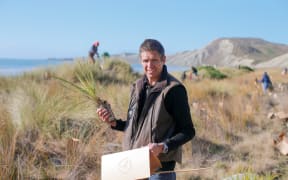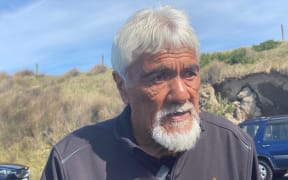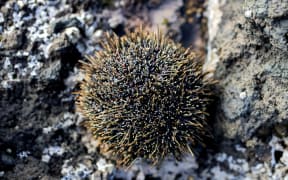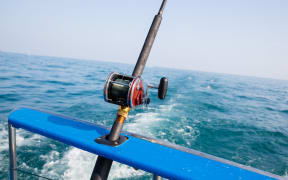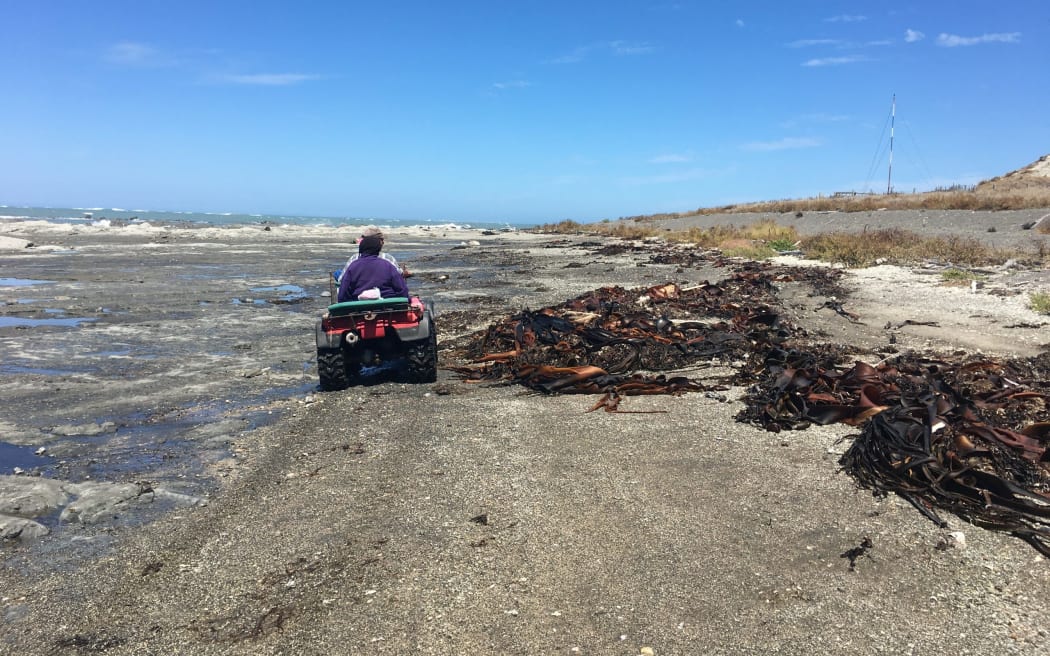
Quad bikes on Marlborough's east coast. Photo: Supplied / LDR
Vehicles have been banned from Marlborough's east coast, except for a 9km stretch during the day, in a bylaw that's been years in the making.
But a Marlborough iwi says by restricting access without explicitly allowing for customary rights, the Marlborough District Council has breached the Treaty of Waitangi.
The council on Thursday agreed to the bylaw which will come into effect on 1 July. It meant quad bikes and side-by-side off-road vehicles can drive below the high tide line from Marfells Beach to the airstrip south of Cape Campbell, under 30km/h.
It comes after years of back and forth, as conservationists and one iwi called for a blanket ban on vehicles, while fishermen argued they needed vehicle access. Meanwhile, some iwi said it breached their customary right to gather kaimoana.
At the full council meeting on Thursday, Māori ward councillor Allanah Burgess said she was concerned about restricting vehicle access to daylight hours.
She also questioned council's strategic planner Sarah Edmonds on how much engagement there had been with iwi, and what the council's view was on kaitiakitanga (guardianship).
"I notice within the paper there is a lot of hunter-gatherer referred to, as opposed to kaitiakitanga and what that looks like," she said.
"What [is] your view on engagement and process with iwi, about them exercising their rights in the area and what kaitiakitanga looks like from their point of view, and how that could be managed, possibly by them, as opposed to enforced by us (council)?"

Edmonds said there was engagement with iwi alongside community consultation.
"I think it's pretty clear in the panel's recommendations that they have taken into account all of the submissions, all of our legal obligations, all of the feedback, and they have recommended a place that takes into account everybody's interest in the east coast," Edmonds said.
The council originally proposed a bylaw that would ban all vehicles from the mouth of the Awatere River south to the Waima/Ure River mouth.
However, an appointed panel, consisting of independent commissioner Rob Enright, commissioner Ma-rea Clayton and councillor David Croad recommended the council allow vehicles from Marfells Beach to the airstrip south of the Cape Campbell lighthouse.
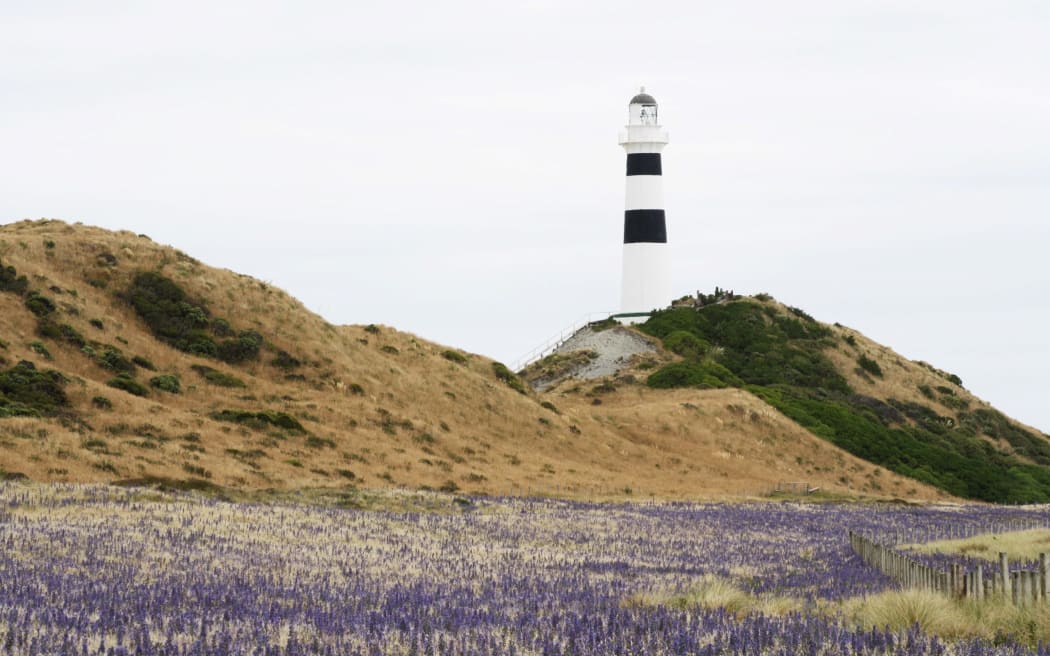
Under the new bylaw, quad bikes and side-by-sides are allowed to Cape Campbell during the day. Photo: LDR / Chloe Ranford
The panel recognised the "importance of motorised access for customary activities". It said they recognised kaitiaki (trustees) had customary fishing rights under the Fisheries Act 1996 to gather kaimoana.
"Our understanding is that this enables Māori to continue to gather kaimoana within the area of the bylaw," the panel said.
Iwi opposed the recommendations from the commissioners, that were adopted by the council, in different ways.
Te Rūnanga o Kaikōura and Te Rūnanga o Ngāi Tahu liked the first bylaw, which banned all vehicles from the coast.
Te Rūnanga o Ngāti Kuia considered restrictions around the time of day breached "rights afforded to Māori through Customary Fishing Rights". The iwi said some species were more abundant at nighttime, and they were often collecting kaimoana for "time-critical events" such as tangi (funerals).
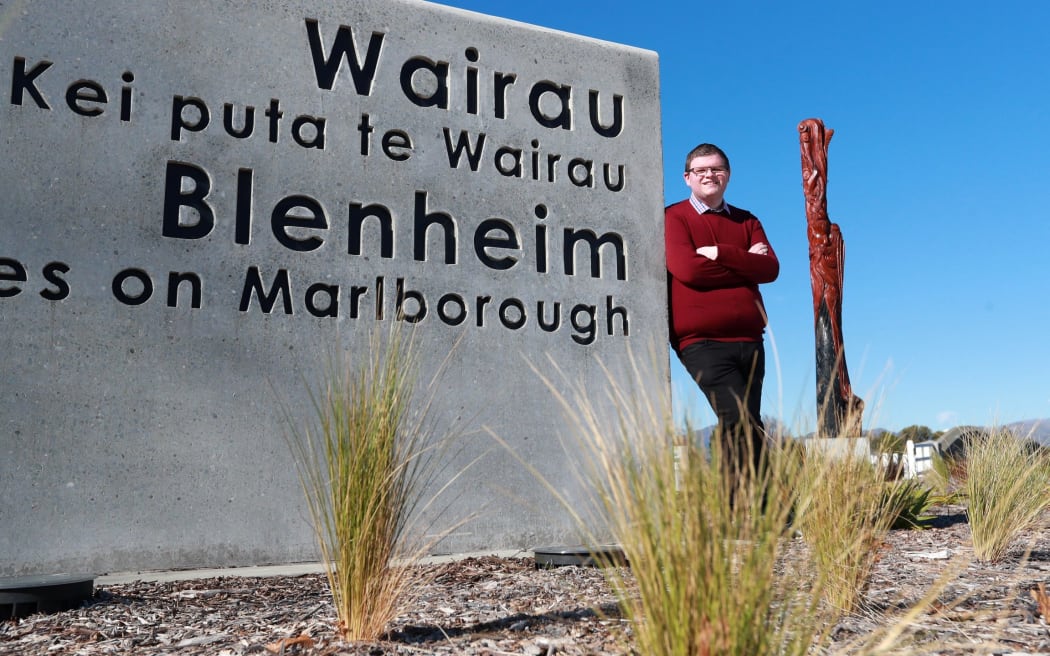
Te Rūnanga a Rangitāne o Wairau general manager Corey Hebberd said concerns raised by the iwi throughout consultation on the bylaw remained unresolved. Photo: Stuff/ Scott Hammond
Te Rūnanga a Rangitāne o Wairau general manager Corey Hebberd said on Friday the concerns Rangitāne raised throughout the bylaw process remained unresolved.
"We are disappointed with council's decision to adopt the bylaw, because it directly impacts our ability to access sites of significance, to undertake our customary practices and to exercise our kaitiaki responsibilities in the area," Hebberd said.
"I think any reasonable person who reviewed the engagement material would see that the engagement process hasn't been adequate."
He said the iwi considered there was a breach of the Treaty of Waitangi.
"In making bylaws, council is a delegate of the Crown and has the responsibilities of the Crown, including the Crown's obligations to meet its obligations under the Treaty of Waitangi.
"The bylaw restricts access - and without access, our ability to access wāhi tapu and carry out customary practices will be curtailed.
"We are continuing to keep across this mahi, and reassure whānau that we are committed to our role as kaitiaki, in protecting the mana of our taiao, whilst also ensuring that the customary rights afforded to us are protected."
Meanwhile, Edmonds said the bylaw would work off a community trust model.
"I guess from a monitoring point of view, in terms of council's usual approach, it's more reactive rather than proactive, so it would be through complaints, education."
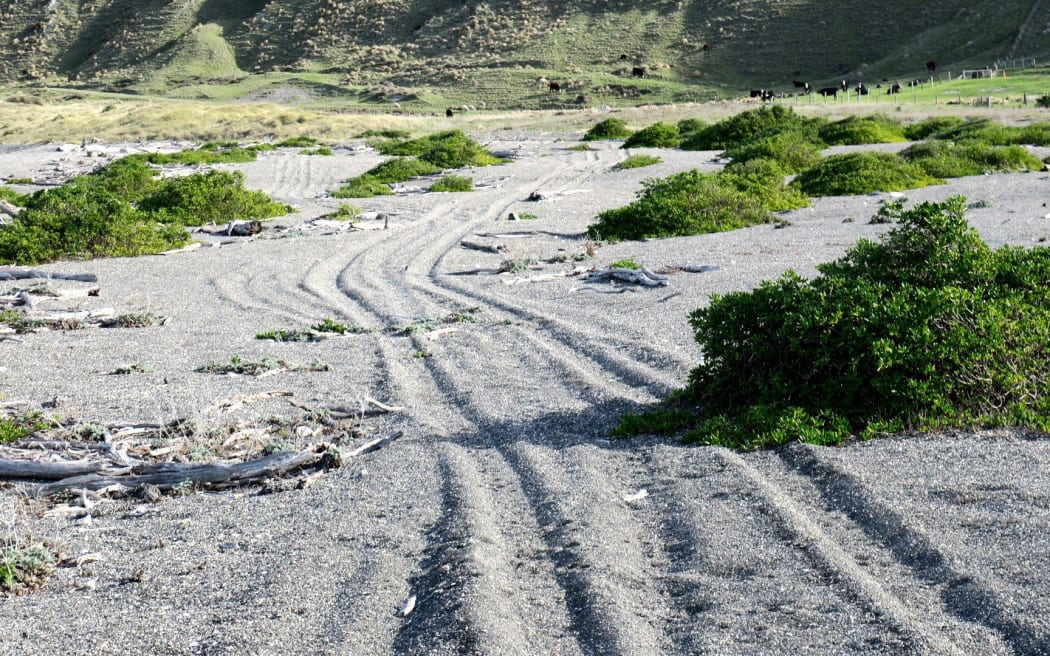
Conservationists have raised concerns about vehicles using Marlborough’s east coast. Photo: SALLY PETER/SUPPLIED
Marlborough mayor Nadine Taylor said the council expected everyone to "collectively protect" the fragile dune and reef systems, and rare and threatened biodiversity from vehicles.
"This bylaw was borne from widespread community concerns, and the public turning to council for a solution," Taylor said.
"We have adopted the recommendations from the hearings panel, which places great responsibility on the public to be part of the solution and act as stewards of this special place."
Councillors Burgess, Ben Minehan and Jonathan Rosene voted against the bylaw. However the majority of councillors voted for its adoption, which meant the bylaw was passed.
Effectiveness of the bylaw will be reviewed in three years' time.
Local Democracy Reporting is Public Interest Journalism funded through NZ On Air
